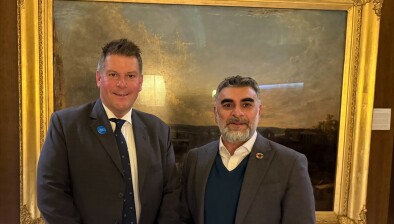Nine in ten Scots anticipate a recession and worsening inflation

New research has revealed widespread anxiety and pessimism about Scotland’s economic outlook.
The key findings of the research, produced in partnership between the David Hume Institute and the Diffley Partnership, on economic attitudes and behaviours are:
- 8 out of 10 people are cutting down on non-essential items and leisure, and over a quarter of people are skipping or cutting down on meals to save money
- 3 in 10 people in Scotland are now losing sleep over their finances
- The overwhelming majority think support from the UK (89%) and Scottish (73%) governments thus far has been insufficient
The Understanding Scotland survey found that 87% of people in Scotland expect the soaring cost of living to cause a recession, and more than nine in ten expect things to get worse before they get better.
Despite households’ best efforts to cut their outgoings, the support on offer from governments is widely seen as inadequate. 64% of people report feeling worse off now than over the past year, and 57% say their income does not satisfactorily cover their cost of living, rising to 73% and 71% respectively in the most deprived neighbourhoods.
Eighty per cent of people have cut down on leisure and/or non-essentials, and over a quarter of people are skipping or cutting down on meals to save money. Despite these efforts to economise, including by foregoing basic necessities, 89% and 73%, respectively, say that the UK and Scottish governments have done too little to help.
There is particular hostility towards energy companies: 95% of people think they have done too little to help people cope with rising prices, and a fifth of people think that the single biggest cause of soaring inflation is companies maximising their profits. This is only just behind the war in Ukraine at 21%, and ahead of pandemic-related supply chain issues at 12%.
Rising prices, in the absence of further support, have seen large numbers of people pushed into greater vulnerability and riskier behaviours. Two in five have depleted their savings, and over a third (35%) have taken on debt and/or borrowed money. The latter figure rises to 44% in the most deprived neighbourhoods, 20 percentage points higher than in the most affluent.
The impacts of soaring prices are not being felt equally across society. Rather, they are hitting the already vulnerable hardest, with 73% of people in the most deprived fifth of neighbourhoods reporting that they feel worse off now than over the past year, compared to 60% in the most affluent areas.
While 80% of people believe that salaries and wages should rise in line with inflation, only a third say they would feel comfortable asking their employer for a pay rise and far fewer - less than 7% - have actually done so. Women, young people, and those in part-time work - already more likely to be in low-paid positions - are especially uncomfortable doing so. The ‘wage-price spiral’ counterargument - that higher wages only serve to drive up demand and inflation - does not appear to have much traction, with only 4% of people deeming this the primary cause of inflation. Only eight per cent of people believe that pay should not rise in line with inflation, a tenth of the proportion that said it should.
Reflecting on the findings, Mark Diffley, founder and director of Diffley Partnership who conducted the research, said: “It is unusual to see the public mood being so unambiguously bleak.
“Financial pressures and anxiety at soaring prices are widespread across society, but particularly acute for those who are already most vulnerable. Across all demographic groups, and especially in more deprived communities, a clear majority are saying that the response to date from the UK and Scottish governments alike are simply not enough.”
Susan Murray, director of the David Hume Institute, added: “Since we started this survey, sadly most people have seen their financial situation deteriorate. With three in ten people now losing sleep due to financial stress, and over a quarter skipping or cutting meals, there are obvious consequences for the economy, labour market and people’s health.
“Eighty per cent of people have already cut down on non-essentials and leisure, and over a fifth have taken on or tried to take on more work, but it’s still not enough.
“Despite their best efforts, two-thirds of people say their money simply isn’t going far enough, and most expect things to get considerably worse before they get better. We need a concerted package of targeted support, and we need it now.”







